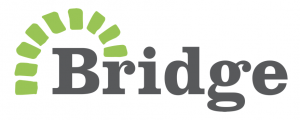What Africa can teach the world about role of data in education transformation
The world’s largest gathering of national education leaders is in London this week. Ministers from around the world will be gathering a stone’s throw from the site of King Charles III’s coronation in Westminster, at the Education World Forum (EWF).
Over the years, EWF has developed a reputation as a place where learning leaders from around the world can talk openly and honestly with their peers and industry partners, sharing ideas and experiences about what is working in education development – and what is not.
And it is clear that these conversations need to be had.
This year’s Education World Forum is happening under the theme New Beginnings: Nurturing Learning Culture, Building Resilience, Promoting Sustainability. Stronger, Bolder, Better Education by Design.
World Bank Education Director, Jaime Saavedra, calls the current state of global learning “the most serious crisis in education in 100 years.” In addition, UNESCO estimates that more than half of children and adolescents around the world are not learning, failing to meet minimum proficiency standards in reading and mathematics.
Even in countries, many might have assumed to have nailed down the workings of a successful education system, there are still problems. A recent New York Times article paints a rather harrowing picture drawing attention to the fact that “about one in three children in the United States cannot read at a basic level of comprehension”, a statistic that researchers say can be put down to the fact that many children are simply not being correctly taught.
In sub-Saharan Africa, the World Bank estimates 90% of 10-year-olds are unable to read a simple sentence with understanding – even though four out of five primary-age children go to school.
But there are visionary governments tackling the challenge of such learning poverty. And many of them can be found here in Africa.
In Nigeria we have organizations like Bridge International Academies tackling the challenge of learning poverty through the implementation of data-driven technology solutions.
Each teacher in every Bridge school is equipped with a handheld teacher tablet, loaded with expertly constructed lesson guides based on the national curriculum.
Each one leverages effective techniques that have been tried, tested and refined for the greatest impact on learning. But as well as supporting each and every teacher, their tablets also deliver a treasure trove of data, including teacher and student attendance, lesson completion and test results.
According to UNESCO, a common obstacle preventing the alignment of a vision with a realistic target is the lack of regularly collected data of good quality on learning outcomes.
But collecting data is only the start towards transforming learning outcomes. The data must be accessible, easy to interpret, and solution-oriented. Recognising this, Bridge and its affiliates are working with partner governments to create immersive visual education data experiences to help bring clarity to decision-making.
Behind such African success lies clear academic evidence. An independent study led by 2019 Nobel Prize-winning economist Professor Michael Kremer investigated the methods that underpin every government program supported by NewGlobe, and found learning gains among the “largest ever measured in international education”.
Results from the study of Bridge Schools found primary students gain almost an additional year of learning, learning in two years what students in non-NewGlobe-supported schools learn in nearly three. Early childhood development students had even greater outcomes, gaining almost an additional year and a half of learning in two years.



